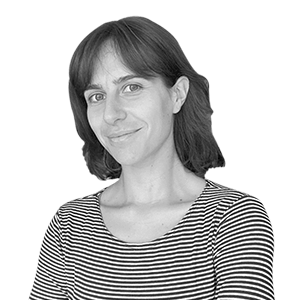The third-highest-voting candidate in the first round was Leónidas Iza, a representative of the indigenous movements, with 5.2% of the vote. Recently, Iza made a discreet appeal to vote for Luisa González, with which it is estimated that at least a portion of his 528,400 votes could go to the Correísmo candidate, who has historically clashed with the indigenous movements: "It's a functional alliance for the elections," maintains Andrea Suárez. Furthermore, Pablo Medina points out that voting is mandatory in Ecuador and points out that many undecided voters will decide on Sunday, when nearly 13 million people will vote in an election in which a minimal difference is expected between the two candidates, who "have already hinted that, if they lose, they will claim fraud."
Ecuador holds elections, becoming the country with the most violent deaths in Latin America.
The security crisis linked to the rise of drug trafficking marks the closest elections in the history of democracy.


Buenos AiresEcuador votes this Sunday in the second round of presidential elections that highlight the polarization the South American country is experiencing. Daniel Noboa, the current president—currently the youngest in the world at just 37—and candidate for the National Democratic Alliance (ADN), is vying for the position with Luisa González, Rafael Correa's heir and candidate for the Citizens' Revolution (RC). After a first round in February in which they were separated by only 17,000 votes, Noboa won with 44.15% of the vote compared to González's 44%.The rest of the candidates were excluded, and it will be their votes that will define Ecuador's future this Sunday. The key issue in these elections and the main concern of Ecuadorians is clear: an unprecedented insecurity crisis related to drug trafficking, which began after the pandemic and now ranks Ecuador as the country with the highest number of violent deaths in Latin America.
Ecuador's ports have become the departure point for the global cocaine route produced in Colombia and arriving in the country by land, ready to be exported. "Ecuador has carried out an economic and social adaptation based on this market," security expert Daniel Pontón explains to ARA. He acknowledges that drug trafficking in the country is a "very complex historical problem," but that the global increase in cocaine use recorded in recent years has turned it into a problem that "has taken root" in Ecuadorian society and whose effects are difficult to manage on a national scale, because drug trafficking is a market that varies thanks to a country that transcends borders.
In this sense, Pontón doubts that either of the two candidates has the capacity to solve the problem: "What Ecuador should do is design a geopolitical strategy to solve the dramatic situation of insecurity we are experiencing."
Insecurity, the focus of the campaign
Daniel Noboa's fifteen months in office have been "erratic," analyst Pablo Medina told ARA. He acknowledges that while the economy has remained "relatively stable," the security and energy crises—with power outages of up to 14 hours last year—have been "very poorly managed." The expert criticizes the government's "lack of planning," which has included ministers "with very little experience." What makes the president most popular, however, is his "tough line" against drug trafficking narrative, in which the integration of the armed forces has been key. During the campaign, the president has doubled down on Donald Trump's United States, announcing an alliance with the private security firm Blackwater, which joined the US military in the 2003 Iraq War. Noboa has also been accused by Gonera of operating under his father's company, the richest man in the country.
For her part, González promises a peace process that addresses the causes and not just the consequences of violence: the candidate has announced the creation of "peace managers," a group of civil society actors who would act in parallel with the security forces and promote reconstruction. Organized groups needed to move drugs. Critics of the proposal fear the creation of "collectives"in the style of Venezuela and Nicaragua, where these civil groups can end up going against the citizenry itself when they express dissent, analyst Andrea Suárez tells ARA. In this sense, public opinion has polarized into two extremes around the elections: "we will become Venezuela" Noboa and González, respectively.
The differences in the social and economic proposals recall the classic ones between the right and the left: while Noboa tends toward economic liberalism and the promotion of the private sector, González is inspired by the ten corridors with an approach focused on the state 0: "these are not what we will have in 2025": Back then, security was not a problem in Ecuador and there was a boom due to the increase in the price of oil on the world market, among other contextual factors. On the other hand, the left at the regional level formed a power bloc that no longer exists. Currently, however, three out of ten workers in Ecuador have a formal job, while the remaining 70% are unemployed or in the informal sector. "It's a vicious cycle," says Suárez, who points to a lack of education and opportunities for young people. "And neither candidate will have an easy time breaking it," because 2025, he says, isn't shaping up to be an "encouraging" year in economic terms: Ecuador must begin repaying loans to organizations like the International Monetary Fund, and, at least so far, no growth in its gross domestic product is projected.
